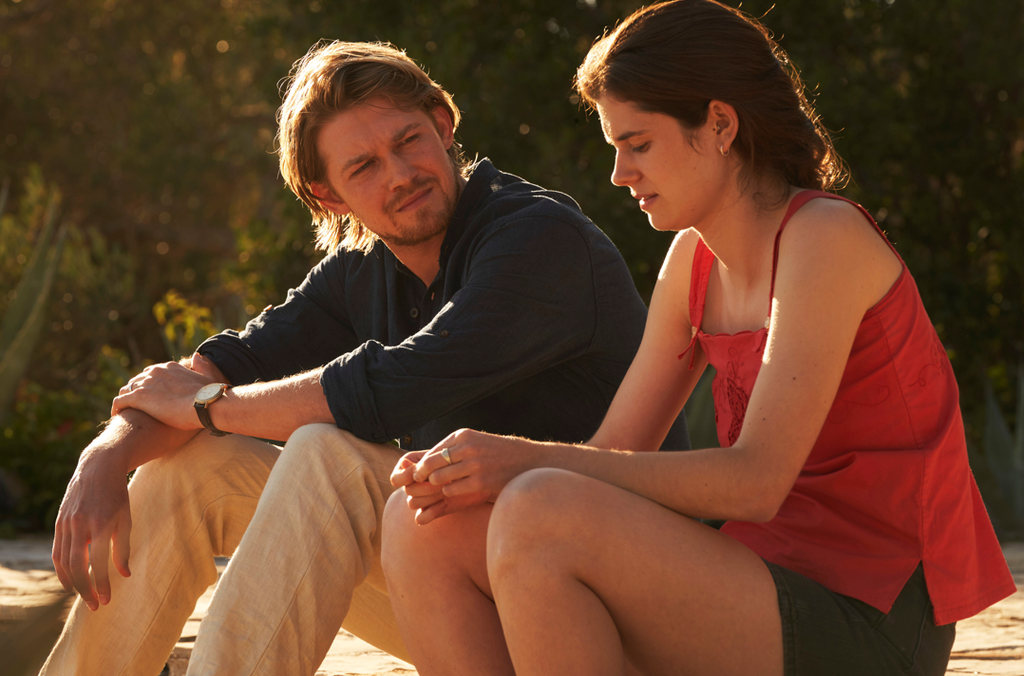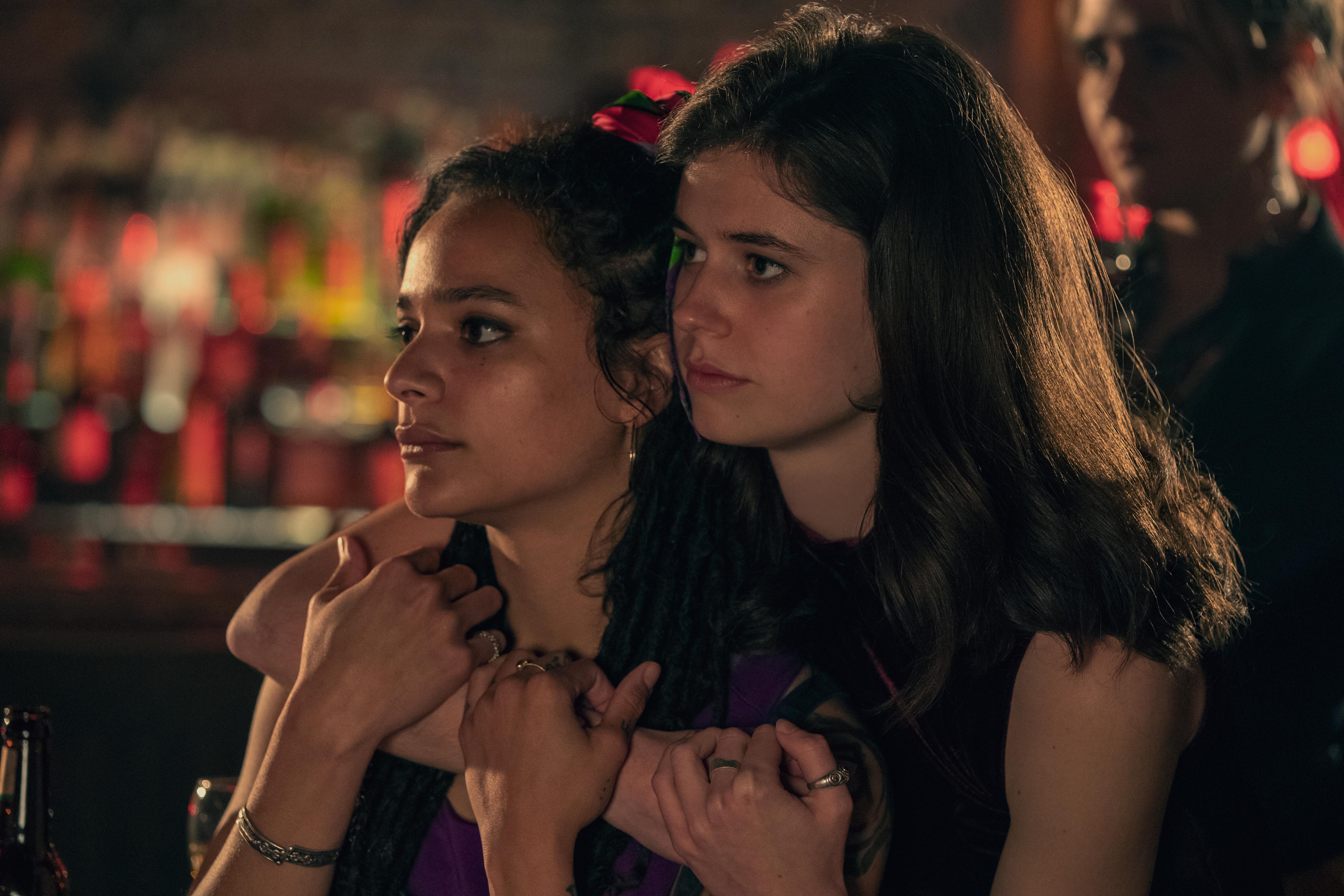
Sorry, but your weekend binge-watching plans are dead. Forewarned is forearmed: Conversations with Friends is a flop. Light a candle, grow out your fringe, bulk-buy some novels about intelligent women who are sad. The dream is over.
“Slow, solipsistic, and self-satisfied,” was how Nick Hilton, The Independent’s chief TV critic, described the show in his two-star review. “It is television designed to be watched out of the corner of your eye while scrolling through Instagram, peering in at strangers on two screens simultaneously.”
But… how can this be so? All the cool people know Conversations with Friends is Sally Rooney’s best novel. Plus, it was made by the team behind the tastefully horny adaptation of Normal People, a lockdown smash that made stars of Paul Mescal and Daisy Edgar-Jones. But this time round, it doesn’t look like the fervent devotion that made Rooney an instant literary star will transfer to the show. Unlike her gliding-along-like-a-swan writing, the show feels unsure of itself, maybe due to limp chemistry between the leads and some major casting misfires. Nick, played by Joe Alwyn, is described in the novel as someone who “looked like he could comfortably pick Melissa up under one arm and fend off interlopers with the other”. Here, he looks like a nervous man in a hostage situation.
Yet the signs that Rooney’s debut might struggle to translate to the screen were there all along; they cannot simply be blamed on Joe Alwyn’s accent, which appears to be based on Harold Bishop from Neighbours. Where Normal People was a love story that crackled on TV, working visually through yearning glances, coy smiles and, yes, all those arty sex scenes, Conversations with Friends is really a novel of intense interiority. That means that on screen we feel locked out. What made the characters relatable on the page now makes them look self-indulgent.
Ostensibly, it’s the story of how Frances and Bobbi, best friends, part-time spoken word poets and former lovers, inveigle their way into the lives of Nick and Melissa, an older married couple. But the real story here is of a young woman who is trying to test out her idea of herself as a person. Frances, our 21-year-old narrator, is always attempting to navigate the boundary between who she is now and who she wants to be.
We first meet her in a cab on her way to Melissa’s house with Bobbi, where she’s “already preparing compliments and certain facial expressions to make myself seem charming”. Later, after kissing Nick for the first time, she looks at Melissa and thinks she hates her: “I didn’t even know if I really hated her, but the words felt and sounded right.” The novel famously ends with her realisation that “you live through certain things before you understand them. You can’t always take the analytical position.”
That sense of immediacy, of being inside Frances’s head, is intensified by the conversations that happen by text. Rooney was the first novelist to really nail the way that millennials speak to one another online, and it’s still one of the things I love most about her writing (yes, even those lengthy email exchanges in Beautiful World, Where Are You). She gets how talking in a digital realm can be like endlessly whispering into your friend’s ear. Online, you discuss life and death while you’re walking to the bus, you can shift topic with zero manoeuvring, and you can concede difficult things without having to look someone in the eye. Everything is either amazing or awful.
Take my WhatsApp chat with my friend Sophie from when the novel was first published in 2017. Without saying hi, I sent her this: “You have to read this book I am reading. I am obsessed with it I just want to read it all the time.” When Sophie asked who it was by and I told her it was an Irish writer called Sally Rooney who was born in 1991, her reply was “f*** off 1991. That’s when I was born. Let me die.”

When Frances and Bobbi talk online, it’s a space for them to think – in one chat, they debate whether love is capitalist. When Frances messages Nick, she’s often testing out how to be bold, but is rarely vulnerable. The messages serve different functions in her quest to work out who she is, depending on who she’s talking with. On screen, of course, this doesn’t work. We must crane forward to feel included; we lose a layer of intimacy.
Last year, the online literary magazine LitHub published a piece suggesting that Rooney’s prose had spawned a new literary style. “The literature of the voice is dying. The literature of the pose has arrived,” wrote Stephen Marche. He suggested that Rooney is “the definitive writer of the pose”, a type of writing so neat and uncluttered as to be almost anonymous: “One never loses oneself in the writing. Rather, one admires, at a slight remove, the precision of the undertaking.”
It’s hard to argue with the fact that Rooney’s style has been almost oppressively influential. But watching Conversations with Friends fail on screen only made me think about my first encounter with her writing, and how her voice was so thrillingly distinctive. The fact that it’s flopped on screen makes one thing clear: the book has a voice, but the TV show is just a pose.







